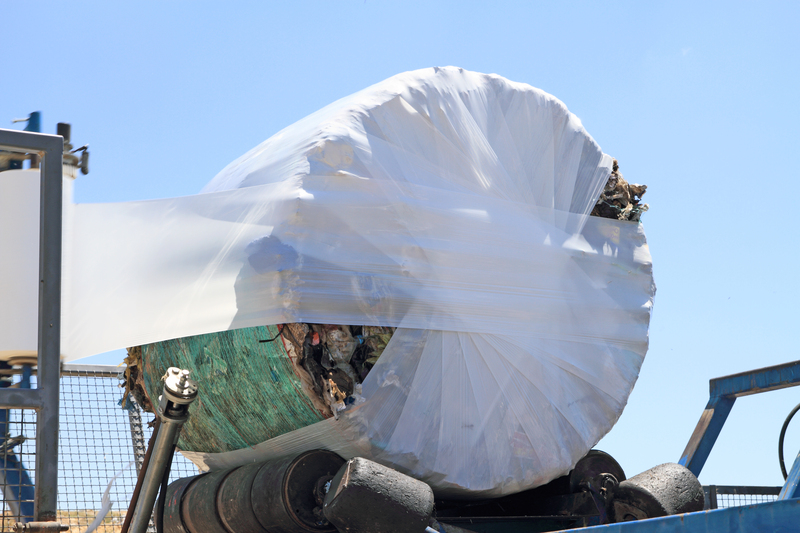Discover Practical Recycling Solutions for Schools
As we strive toward a greener future, schools play a pivotal role in cultivating eco-friendly habits. Establishing practical recycling solutions for schools not only fosters environmental awareness among students, but also significantly reduces waste and teaches children the value of sustainability from a young age. This comprehensive guide covers everything educators and administrators need to know about integrating effective recycling systems in school environments.

Why Schools Need Recycling Programs
Schools generate a considerable amount of waste daily, from cafeteria leftovers to paper and packaging. Implementing school recycling programs is a vital step in addressing these challenges. Here's why:
- Reduces landfill waste: Huge volumes of paper, plastics, and food waste are diverted away from landfills.
- Educates future generations: Students learn environmental stewardship and responsibility.
- Promotes community involvement: Families can participate in school-wide recycling initiatives.
- Potential cost savings: Schools may decrease disposal costs and possibly earn revenue from recyclables.
- Meets local or national regulations: Many regions require recycling initiatives in public institutions.
Key Steps to Implementing School Recycling Initiatives
1. Assess Current Waste Management Practices
Getting started involves understanding what your school currently throws away. Perform a waste audit to identify:
- Types and amounts of waste produced
- Which items could be recycled but are not
- Where most recyclable materials are generated (e.g., classrooms, cafeteria, offices)
2. Set Realistic Recycling Goals
Analyze your audit findings and set achievable targets. For example:
- Paper waste reduction: Aim to recycle a certain percentage of paper within the first year.
- Plastic reduction: Switch to reusable or recyclable materials for meals and events.
- Composting: Start by diverting food scraps in the cafeteria for composting.
3. Choose the Right Recycling Systems
A successful school recycling program depends on having the right infrastructure. Consider:
- Clearly labeled recycling bins: Use color-coded containers for paper, plastics, metals, and organics. Place them in high-traffic areas.
- Accessible recycling stations: Ensure bins are present in classrooms, cafeterias, playgrounds, and administrative areas.
- Removal schedule: Set a regular schedule for emptying and collecting recyclables to maintain cleanliness and efficiency.
4. Educate and Involve Students and Staff
Education is crucial for a sustainable program. Include:
- Workshops and assemblies: Teach students about the importance of recycling and how to sort materials correctly.
- Classroom projects: Encourage creative projects using recycled materials or data analysis about school waste.
- Staff training: Ensure custodial and teaching staff understand proper procedures.
5. Collaborate With Local Recycling Partners
Team up with local waste management companies, government agencies, or environmental groups. They may offer:
- Curbside pick-up services
- Educational resources and workshops
- Recycling containers and supplies
- Opportunities for field trips to recycling centers
Popular School Recycling Solutions
Pilot Paper Recycling Programs
Paper is one of the most abundant wastes in educational settings. A focused effort on paper recycling in schools should involve:
- Setting up paper-only bins in every classroom and office.
- Encouraging double-sided printing and digital assignments.
- Reusing scrap paper for notes and crafts.
Plastic and Aluminum Recycling
Schools can collect a significant volume of plastic bottles, wrappers, and aluminum cans. To maximize impact:
- Create bottle and can deposit points in cafeterias and hallways.
- Participate in national collection drives or recycling competitions.
- Use posters and reminders to educate about acceptable materials.
Compost Organic Waste
Food waste makes up a huge fraction of school garbage. Composting enables organic material to be converted to fertilizer. Practical tips:
- Set up kitchen and cafeteria compost bins.
- Include garden spaces where students can use the compost.
- Teach students how composting helps reduce greenhouse gas emissions.
Electronics and Battery Disposal
Old electronics should not be placed in regular trash. Establish electronic waste recycling by:
- Designating drop-off periods for broken computers, tablets, phones, and batteries.
- Partnering with certified e-waste recyclers.
- Running classroom discussions on the environmental impact of tech waste.
Recycling School Supplies and Art Materials
Many everyday classroom supplies can be recycled, repurposed, or safely disposed of:
- Collect used markers for specialized recycling programs.
- Donate unused or gently used school supplies to charities.
- Repurpose containers and packaging for art projects.
Creative Approaches to Boost Participation
Establish Green Committees
Form student-led "green teams" or eco-committees. These students can champion sustainability initiatives, monitor recycling adherence, and share progress updates with the school community.
Competitions and Incentives
- Host recycling challenges between classes, grades, or school houses.
- Reward top performers with certificates, eco-friendly products, or special privileges.
Community Education
Encourage students to educate their families and neighborhoods about the advantages of recycling, multiplying the impact of your school's endeavors.
Addressing Common Challenges
Contamination of Recyclables
Incorrect sorting can spoil entire batches of recyclables. Solutions include:
- Clear, visual signage on bins
- Regular reminders and education sessions
- Student "bin monitors" to correct mistakes
Limited Funding and Resources
Many schools worry about the costs of launching a robust school recycling program. Address shortages by:
- Seeking grants from local governments or NGOs
- Partnering with recycling companies for equipment donations
- Utilizing parent-teacher associations for fundraising
Compliance and Buy-In
Change requires everyone's participation. Increase buy-in by:
- Engaging school leaders and teachers in planning and promotion
- Showcasing achievements regularly
- Integrating recycling themes into the curriculum
Technological Advances and Tools
Smart Bins and Apps
- Sensor-equipped bins: Alert custodial staff when full, reducing overflow.
- Data tracking apps: Monitor waste and recycling rates to identify progress or areas for improvement.
Digital Education Tools
- Interactive online resources, games, and quizzes can make learning about recycling fun and engaging for students of all ages.
- Virtual tours of recycling centers can provide unique real-world insights without leaving the classroom.
Highlighting Success Stories
Many schools around the world have become models for effective recycling. For instance:
- Zero-Waste Elementary: An elementary school in California achieved a 90% waste diversion rate through aggressive composting and recycling programs.
- Green Schools Program (UK): Hundreds of schools across the UK have reduced their landfill contributions by 50% using robust recycling and reuse initiatives.
These cases prove that, with careful planning and community support, practical recycling solutions for schools are achievable and make a tangible difference.

How to Sustain Long-Term Recycling Success
- Regularly review and improve recycling processes
- Celebrate milestones publicly
- Provide ongoing education on new materials and methods
- Engage new families and staff yearly about the school's commitment
Conclusion: Making a Difference One School at a Time
Implementing practical recycling solutions for schools goes beyond just waste reduction--it inspires young people, supports the local community, and safeguards our planet's resources for the future. Whether your school is just starting its eco-journey, or looking to level up its sustainability efforts, adopting and optimizing school recycling programs will set the stage for lasting positive change.
Start small, set achievable goals, and watch as your school community becomes a model for environmental responsibility!